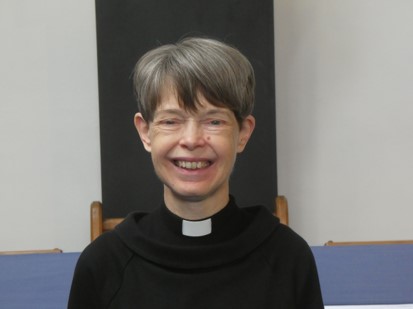World Religion Day is celebrated on the third Sunday of January each year. It was established in 1950 by the national spiritual assembly of the Bahai Faith in the United States with the aim of promoting harmony and understanding between people of different religions.
The Bahai’s were inspired to establish World Religion Day by two particular ideas that shape their faith, the oneness of religion and progressive revelation. These ideas lead the Bahai to believe that the spiritual principles that underpin the different religions of the world are in harmony and that religions can be used to unify humanity and help it to progress because their spiritual principles are in harmony.
The Bahai’s point to the fact that the major world religions and indigenous peoples share a version of the ‘Golden Rule’, that is the principle of treating others as you would wish to be treated yourself and not harming others or yourself. Followers of Jainism would add that ‘one should treat all creatures in the world as one would like to be treated’, whilst the Yoruba people would add that ‘one going to take a pointed stick to pinch a baby bird should first try it on himself to feel how it hurts.’
As I look around and reflect as we approach World Religion Day 2023, I certainly feel that individuals and communities, locally and globally, would have much greater well-being if the ‘Golden Rule’ shaped our thought and our relationships with other people and with all forms of life on this beautiful and fragile earth. And wouldn’t the earth and its intricate ecosystems enjoy much greater well-being, too?
Would we human beings really want to destroy each other and the earth if the Golden Rule shaped how we think and we relate? Wouldn’t we, rather approach each other and all forms of life, as sentient and worthy of respect and care?
In many respects, the spiritual principles that underpin World Religion Day run against the grain of our individualistic society that values individual effort, the accumulation of private wealth, and over-consumption, at the expense of those who are vulnerable or different, and at the expense of the earth. They also run against an historic human tendency to interpret and apply the sacred texts and traditions of the world’s religions literally and dogmatically; a tendency which has caused much human suffering over the millennia as those sacred texts and traditions have been used to justify war and oppression and cause great human suffering.
In contrast, the spiritual principles that underpin World Religion Day understand us human beings to be spiritual beings whose bodies and minds are connected, and who, in turn, are connected to the earth on which we depend and the myriad life forms that surround us. These principles offer a holistic framework within which individuals and communities can flourish and share well-being for the good of current and future generations.
I was reminded that we human beings are spiritual beings. Spiritual beings who are connected to each other and to the earth and the life forms that surround us when my husband and I went on a New Year walk on January 2. I had been busy with ministry across the autumn months and into the winter. I had also been busy with moving house. And between the busyness of ministry and the move, I had been living in my head and had not had the chance to pause and reflect and to be in my body and in the natural world and with my family.
As my husband and I walked on January 2, I could feel myself breathe more deeply and begin to unwind and let go of the busyness and strain. As I breathed more deeply, my horizon, my vision, literally expanded. In the midst of the barren countryside, I started to notice mosses and lichens that live through the Winter and Lambs’ Tails that are early signs of the Spring that is to come. And, together, we watched a kestrel hover and then fall from the sky as it swooped on prey, or potential prey.
Somehow, in our gentle New Year walk, my husband and I renewed our connection with the rhythm of the seasons and the cycle of life. Renewing that connection was important for us as we reflected on the journey through ill health and to recovery that we made in 2022 and our hopes for health and well-being in 2023.
A sense of connection with the rhythm of the seasons and the cycle of life is something that is shared by people of all faiths and no faith. We can experience that sense of connection when we walk in the countryside or rest in a garden or park. And we can experience it when we still our minds in meditation, whether that meditation is shaped by the practices of a particular religious tradition or by secular wisdom. We are spiritual beings, and our well-being, and that of the earth, depends on that sense of connection.
My hope as we embark on this New Year, and mark World Religion Day, is that we will each be reminded that we are spiritual beings and find the time and space to connect with the rhythm of the seasons and the cycle of life and be reconnected with ourselves.

Rev’d Dr Julia Bebbington Babb is an Anglican priest who is Chaplain to NSCHT.
